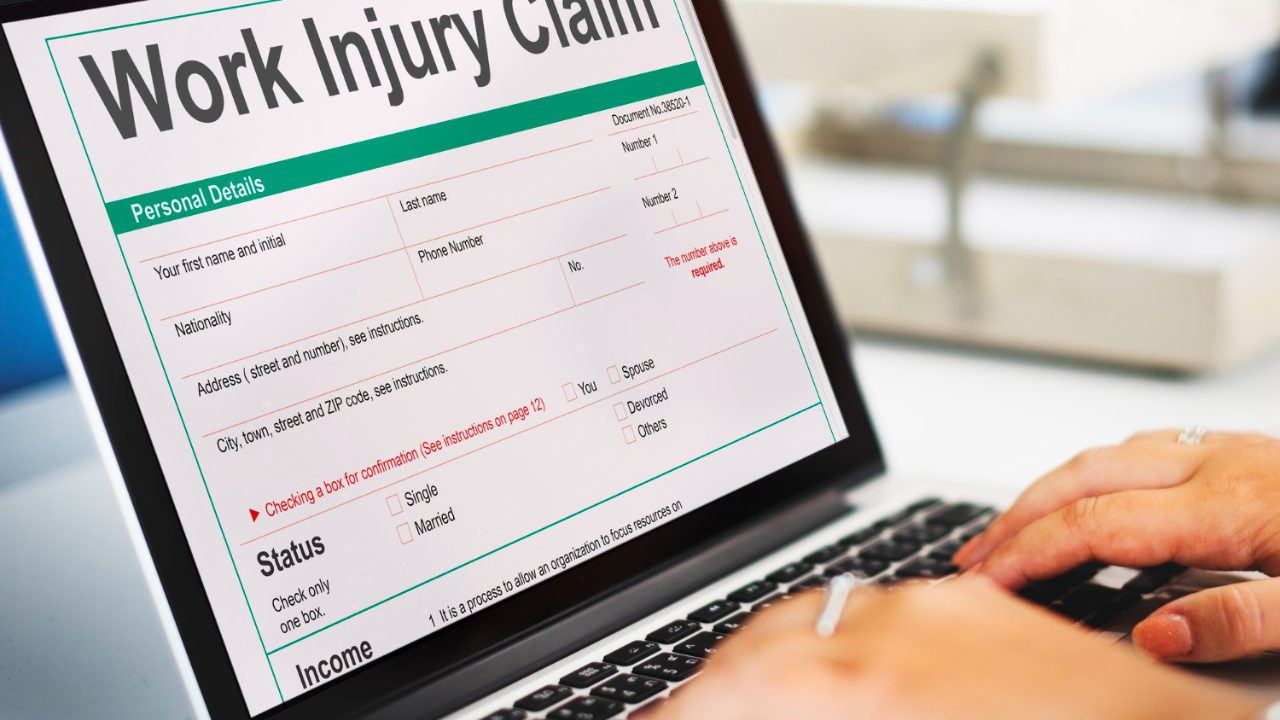Workers’ compensation insurance is mandatory in almost all US states. But when something happens, not all work injury claims get approved for several reasons.
It can feel incredibly frustrating when your insurer rejects your claim. You’re hurt and tackling mounting medical expenses, and the lifeline you thought you had has been taken away.
The good news is that an initial denial isn’t set in stone. You can turn the decision around by being methodical and meticulous when filing an appeal. This is your roadmap to getting the benefits you deserve.
In this article, I will talk about the following things:
- What is workers’ comp?
- What are the steps of workers comp appeal?
- How to gather evidence for workers comp appeal?
Therefore, if these are the things that you want to know, keep on reading this blog till the end…
An Overview Of Workers’ Comp
Before I start explaining the workers’ comp appeal process, let me give you a brief overview of what workers’ comp is in the first place.
Workers’ compensation (or workers’ comp) is an insurance program required by state law that pays benefits to workers who become injured or ill on the job.
It is a no-fault provision, which means the benefits will pay whether or not the worker was at fault for the injury, and in return, workers generally cannot sue their employer for negligence.
Workers Comp Appeal: What Are The Steps To Follow?
Here are a few things that you should do when it comes to a successful workers comp appeal:
1. Get Expert Legal Help
Some people think hiring workers’ compensation attorneys is a waste of money and try to skip legal representation. What many don’t realize is that you’re fighting against an insurance company that has experienced lawyers working to pay as little as possible.
Moreover, each jurisdiction has unique workers’ compensation laws. Poor understanding of relevant regulations can compromise your case.
It’s best to contact a competent workers comp law firm in your state. A good lawyer knows their way around the workers’ compensation system, so they know how to tackle challenging deadlines and the appeal process.
In addition, work injury lawyers know what specific evidence is most compelling to administrative law judges and can counter insurance companies’ arguments effectively.
There’s no reason to worry about the legal bills, as most firms offer free virtual consultations. Most lawyers also work on contingency, so they only get paid if you win. It means they’re as driven as you are in fighting for your legal rights and aren’t just chasing monetary benefits.
2. Study The Rejection Letter
It’s not uncommon for insurance companies to reject claims for various grounds. When this happens, they’re legally required to send a formal written notice of denial to the concerned claimant.
If you’re at the receiving end of this document, examine the denial letter carefully, as it contains the most critical pieces of information you need.
The document provides the specific reasons why your claim was rejected. It also explains how to appeal the decision and the deadlines you must meet to file an appeal with your state’s workers’ compensation board.
Contact your insurance carrier or your state’s regulatory agency if you haven’t received a letter within a reasonable time frame. The clock for your appeal starts running as soon as the denial is issued, and you can’t challenge the decision without knowing the reasons.
3. File The Formal Appeal On Time
Every state has its own workers’ comp system, so the process varies. Generally, individuals filing for workers’ comp claim appeals have up to 90 days from the denial.
In New York City, for example, you must lodge a workers’ comp appeal within 30 days of the filing of the judge’s decision. Appellants must fill out the right form and avoid leaving blank entries. They must also attach the basis for the appeal before submitting it to the New York Workers’ Compensation Board.
The other party must respond within 30 days following the appeal. The board will either affirm, revise, or reverse the previous decision after examining the new information at hand.
It’s important not to miss the deadline, as you may lose your right to appeal. Call your state’s workers’ comp office or check their website if unsure about the timeline.
4. Prepare For The Hearing
Once your appeal is accepted, a hearing before an administrative law judge will be scheduled. This is your opportunity to present a persuasive case, and being organized and prepared pays off in and out of the courtroom.
Put all your documents in a single folder and label it so it fits seamlessly with your presentation of the evidence. It won’t hurt to practice your testimony in advance.
Be forthright, be consistent, and focus on tying injured workers’ injuries to their job, whether it was a specific incident or simply made worse by work.
Workers Comp Appeal: How To Gather Evidence To Prove The Other Party Wrong?

The burden of proof rests firmly on your shoulders. With your lawyer by your side, you can confidently assemble your arsenal of evidence based on the reason for the claim denial.
1. Lack Of Medical Evidence
Next time, if a workplace injury has resulted in your inability to work, get a doctor’s report that clearly links your diagnosis and your incapacity to work to the specific incident at work. Specificity always helps.
Support the doctor’s report with your healthcare records that include all the tests and injury reports that show the extent and the nature of the physical harm.
Also, you can provide your medical treatment history to demonstrate that you have been compliant with the doctor’s instructions.
2. Dispute Over Causation
The insurance company may claim that your injury was due to a pre-existing condition and that it happened outside the workplace. You can disprove that claim by having witness statements and detailed medical documentation.
Look for colleagues and customers who saw the accident and can confirm the conditions that led to your injury.
Request them to write a witness statement describing what they saw. Moreover, you can provide the accident report and the photos or videos of the accident location.
3. Injury Is Non-Compensable
“Non-compensable” is a broad legal term, but it basically means your losses or injuries aren’t eligible to be paid out. Certain conditions, like stress or a heart attack, usually don’t qualify.
On a similar note, insurers might insist that your injury didn’t arise in the course of employment or that you violated a safety rule.
Your appeal should focus on providing proof beyond a reasonable doubt that your work-related injury meets the legal standards for compensation.
Apart from establishing direct medical causation and collecting witness statements, you can submit time cards to prove you were performing an essential job function.
In addition, you can refer to incident reports and safety inspection logs to confirm that the hazard existed and that you were cautious.
4. Inconsistencies And Inaccurate Information
An honest mistake can sometimes lead to a rejected workers’ comp claim application. You might attach the wrong documents or misspell some names in haste or while dealing with pain.
Some of the things that give insurers a reason to reject the submission even before looking at the merits include the following:
- Leaving blanks on forms.
- Missing papers likewise.
Additionally, failing to report your injury on time and other procedural errors can have the same effect.
When lodging a workers comp appeal, file new forms and submit new documentation. This includes affidavits and corrected medical reports, and any other papers cited in the denial letter.
There are many reasons why a workers’ comp claim may be rejected, with some harder to rebut than others. A good rule of thumb is to highlight every reason for denial in the letter, then gather strong evidence to crush them when preparing your legal request.
Persistence Matters In Workers’ Comp!
Think of a workers comp appeal as your additional opportunity to explain your story in detail. Being able to do it is not one of the things that comes easily. But it is possible when you know how the process goes and get help from a professional if you need it.
While drafting your petition, be sure that clear-cut facts support your claims. There can be a few things that the insurance company might have underestimated or overlooked. However, the appeals process may take weeks or even months, and several different entities may be involved.
This is the reason why it is great to have an attorney on your side, as they will be able to facilitate the progress of your case while you take care of your recovery.
Read Also:

















